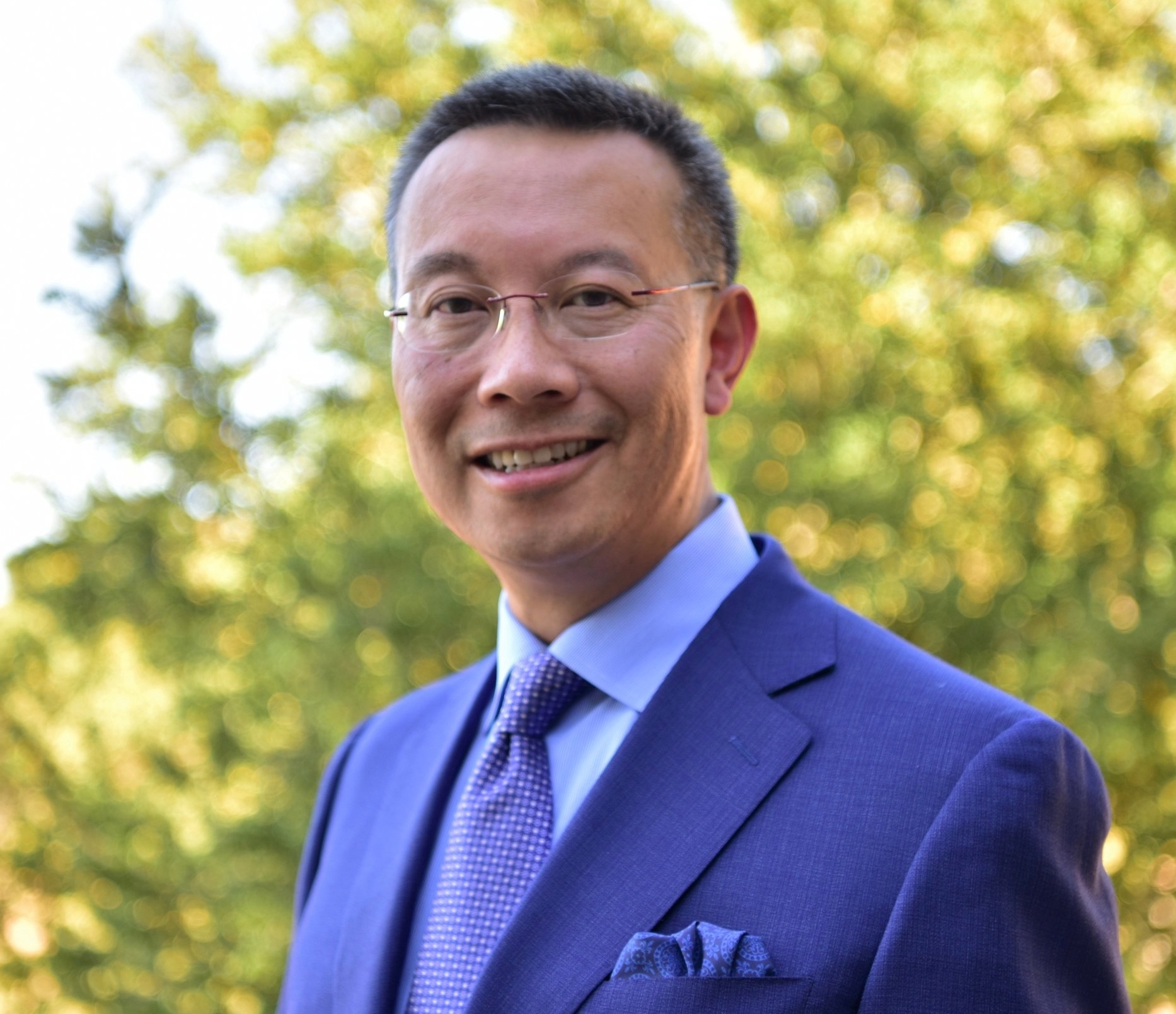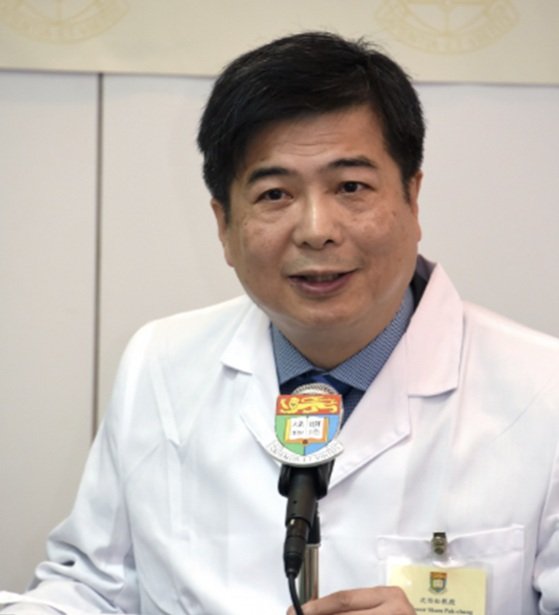


Leadership New
Leadership
Leadership New
Leadership
A good management team is crucial because their leadership helps ensure patients get the best care, with clear communication and the best experience from start to finish
Daniel C. Siu, MS, MBA
Founder and CEO
Mr. Siu is the founder and CEO of Rainbow Genomics. He brings 30 years of experience in genetics and life science business to the company.
Prior to Rainbow, Mr. Siu co-founded Nextcode Health, a bioinformatics company spun off by Amgen and deCODE Genetics. Nextcode was acquired for US$65M after one year in operations. Prior to Nextcode, Mr. Siu co-founded Axeq Technologies. Axeq subsequently merged its 200 client accounts with Macrogen, to become the world's largest next-generation-sequencing service provider. From 2005-2011, he was the managing director at deCODE Genetics, growing their genomic services business into a market leader worldwide.
Mr. Siu received his B.S. in molecular biology from the University of Texas, Austin; his M.S. in bioinorganic chemistry from the University of Minnesota, Minneapolis; and his MBA from San Francisco State University.
Yasushi Okazaki, M.D, Ph.D.
chief medical officer
Dr. Okazaki is a pioneer and a leader in using precision medicine, whole-exome and whole-genome sequencing tests for hereditary disorders and tumor care in Japan. He currently holds multiple positions -
Dr. Okazaki is the head of the Center for Diagnostics and Therapeutics of Intractable Diseases, at Tokyo-based Juntendo University. He is also a professor and a board-certified medical director, and a licensed clinical specialist in medical genetics, at the Graduate School of Medicine, Juntendo University.
In addition, Dr. Okazaki is the director of RIKEN Genome Network Analysis Support Facility, leading their DNA sequencing research efforts. RIKEN is the largest scientific research institute in Japan, with one of the world’s fastest supercomputers and two nobel price winners on their research staff.
Dr. Okazaki is a pioneer in Japan using genomics technologies in clinical care, including the applications of whole-exome and whole-genome sequencing in pediatric and emergency neonatal care, and cancer panel sequencing for tumor profiling. He also leads multiple cancer screening projects for Japanese patients. Dr. Okazaki is frequently interviewed by the Japanese media and corporations, on current practices of precision medicine and how it may impact the Japanese society.
Dr. Okazaki received his M.D. from Okayama University Medical School, and his Ph.D. from Osaka University Medical School.

Clinical Advisory Board New
Clinical Advisory Board New
Clinical & Scientific Advisory Board
Why is having a group of experts to guide us important?
A scientific advisory board is like having a team of expert coaches to guide important decisions in health and research.
They bring the latest knowledge and experience to make sure the science is solid, so better solutions can be created for everyone.
Executive Advisor, Clinical Affairs and Global Strategic Alliances
Jeffrey Gulcher, M.D., Ph.D.
Dr. Jeff Gulcher co-founded deCODE genetics in 1996. He served as the Chief Scientific Officer as the company achieved worldwide recognition as a global leader in analyzing and understanding the human genome, until the company was acquired by Amgen in 2012. Dr. Gulcher has authored over 200 peer-reviewed publications on the genetics of common and complex diseases.
Dr. Gulcher received his Ph.D. and M.D. from the University of Chicago, and completed his neurology residency at the Longwood Program of the neurology departments of Brigham and Women’s Hospital, and Beth Israel Deaconess Medical Center of Harvard Medical School.
Clinical Advisor
Wayne W. Grody, M.D., Ph.D.
Dr. Grody is a professor in the Departments of Pathology & Laboratory Medicine, Pediatrics and Human Genetics, and the institute for Society and Genetics, at the UCLA School of Medicine.
He is the director of the Molecular Diagnostic Laboratories and the Clinical Genomics Center within the UCLA Medical Center, one of the first such facilities in the country to offer DNA-based tests for diagnosis of a wide variety of genetic, infectious, and neoplastic diseases, as well as bone marrow engraftment, patient specimen identification and paternity testing by DNA fingerprinting, and clinical genomic DNA sequencing for undiagnosed disorders.
Dr. Grody is also an attending physician in the Department of Pediatrics, specializing in the care of patients with or at risk for genetic disorders (with a special interest in familial Mediterranean fever, among others), and director of the UCLA Intercampus Medical Genetics Training Program.
He has been one of the primary developers of quality assurance and ethical guidelines for DNA-based genetic testing for a large number of governmental and professional agencies including the FDA, AMA, CAP, ACMG, ASHG, NCCLS/CLSI, CDC, AMP, VA, ACGME, NIH-DOE Human Genome Project (ELSI program).
Dr. Grody was the president of the American College of Medical Genetics (2013-2015)
ACMG is a national institution that sets the standards and guidelines in the practice of medical and molecular genetics in the U.S.
He also served -
For five years as the founding chair of the Advisory Committee on Genomic Medicine for the entire VA healthcare system
As a member of the NIH-DOE Task Force on Genetic Testing
As the working group chair for development of national guidelines for cystic fibrosis and factor V-Leiden mutation screening.
Dr. Grody did his undergraduate work at Johns Hopkins University, received his M.D. and Ph.D. at Baylor College of Medicine, and completed residency and fellowship training at UCLA. He is double-board-certified by the American Board of Pathology (Anatomic and Clinical Pathology, molecular Genetic Pathology) and the American Board of Medical Genetics (Clinical Genetics, Molecular Genetics, Biochemical Genetics).
Clinical Advisor
Dr. Stephen Tak Sum Lam 林德深醫生
Dr. Lam is an Honorary Professor of the Faculty of Medicine in the Chinese University of Hong Kong. Between 1990-2015, Dr. Lam was the Director of Genetic Laboratory and Head of Clinical Genetic Service, Department of Health, Hong Kong.
Over these 25 years, Dr. Lam was instrumental in training many clinical geneticists and teaching physicians who are currently serving various communities in Hong Kong as clinicians and faculty members at university medical schools - Dr. Lam is often referred to as "the grandfather of medical genetics in Hong Kong" .
His main clinical activities and research are in the diagnosis and prevention of genetic diseases and ethical, legal and social issues in genetics. He has published more than 100 articles and edited two books.
In addition, Dr. Lam is also -
Fellow of Hong Kong College of Paediatricians
Fellow of Royal College of Physicians of Edinburgh
Fellow of Hong Kong Academy of Medicine
Dr. Lam serves as Convenor of the Ethics Panel of the Hong Kong Family Planning Association and as a member on the Ethics Committee of the Council on Human Reproductive Technology in Hong Kong. He also serves as editor of several international journals including Clinical Genetics, HUGO Journal, and Journal of Community Genetics.
Dr. Lam was also the -
Founding Chairman of the Hong Kong Society of Medical Genetics in 1987, and has served incessantly on the council of this society
Consultant Clinical Geneticist, Director of Genetic Laboratory and Head of Clinical Genetic Service, Department of Health, Hong Kong (1990-2015).
Council member of the International Society for Neonatal Screening, and a serving committee member of the Chinese Genetics Society.
Past President of the Asia Pacific Society of Human Genetics (2011-12), and the International Federation of Human Genetic Societies (2012-14).
Dr. Lam obtained his Bachelor of Medicine and Bachelor of Surgery degrees from the University of Hong Kong in 1976. Subsequently, he was trained in Paediatrics and Clinical Genetics at Queen Elizabeth Hospital, Hong Kong and Guy's Hospital, London. For his research on Biochemical Genetics and Cytogenetics, he was awarded Doctor of Medicine in 1988. He was also awarded Master of Health Administration from the University of New South Wales in 1997.
Scientific Advisor
Professor Sham Pak Chung, PhD, MRCPsych, JP. 沈伯松教授
Professor Sham is currently the Chair Professor of Psychiatric Genomics, and Co-director of the State Key Laboratory of Brain and Cognitive Sciences at the University of Hong Kong. His research focuses on the aetiology, mechanisms and treatment of psychiatric disorders, genetics of complex diseases and quantitative traits, statistical methodology for genetic and epidemiological studies including genome-wide association, sequencing and functional genomic studies.
Professor Sham studied medicine at Cambridge and Oxford Universities, and subsequently trained in Psychiatry at the Bethlem Royal and Maudsley Hospitals in London. He received his B.A. in Medical Sciences and Ph.D. in Statistical Genetics from Cambridge University, B.M, B.Ch. in Clinical Medicine from Oxford University, and the M.R.C.Psych. from the Royal College of Psychiatrists.
Professor Sham was appointed Professor of Psychiatric and Statistical Genetics at the MRC Social, Genetic and Developmental Psychiatry Research Centre at King’s College London from 2000 to 2006. He was the Head of Department of Psychiatry, The University of Hong Kong from 2008 to 2012, and served as the Director of the Centre for Genomic Sciences from 2012 to 2019.
Clinical Advisor
Scott W. Binder, M.D.
Dr. Scott Binder is currently the director at the Binder Institute of Pathology, Los Angeles. Previously, he was the Pritzker Professor & Senior Vice Chair; Director, Pathology Clinical Services; and Chief, Dermatopathology at the University of California, Los Angeles.
At UCLA Health, Dr. Binder directed all of the clinical and anatomic laboratories, the Autopsy Service, the Biomarker Innovations Laboratory, the Cytogenetics Laboratory, the Molecular Pathology Laboratory and the Clinical Genomics Center.
Dr. Binder is a nationally and internationally known dermatopathologist with one of the largest consultative practices in the country. He receives more than 6,000 second opinion consults on difficult and challenging cases in dermatopathology from academic institutions, reference laboratories and community pathology groups from all over the country as well as international cases from Greece, China, and Korea.






